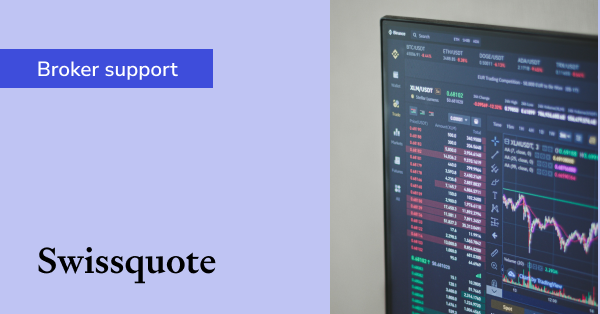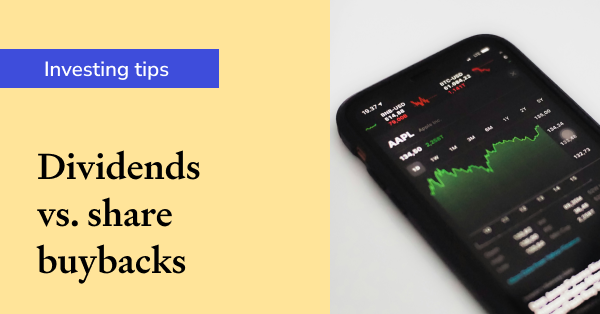How zero-commission brokers have changed investing
In just a matter of days, six of the largest brokers in the United States - Interactive Brokers, TD Ameritrade, Charles Schwab, E-Trade, Fidelity and Ally Invest - all announced they were abolishing commissions when trading stocks, ETFs and (some) options online. This rush from brokers to cut trading fees to zero represents a seismic shift in the industry, and presents a number of ramifications for both brokers and investors alike.
The cost of commission-free trading
Many analysts say the price war really began in 2013, when Robinhood, a Silicon Valley backed tech company, entered the American market with a business model built to offer zero-commission trading to investors.
Unlike Robinhood, the brokerage giants that have all rushed to offer zero-commission trading were all reliant to varying degrees on that fee revenue to support their businesses, with estimates on the hit to revenues for some brokers as high as 28%:
| Broker | Impact on revenue |
|---|---|
| TD Ameritrade | 28% |
| Charles Schwab | 8% |
| E-Trade | 17% |
Zero-commission stock trading? What's the catch?
Brokers still need to make money even if they aren’t charging commissions. Schwab for example is the least exposed to the impact on revenues from adopting zero-commission trading, with a range of diversified alternate revenue sources, including:
-
Interest income from idle cash in brokerage cash accounts
-
Forex income
-
Wealth advice
-
Asset Management Fees
-
Fees on lending securities to hedge funds and short sellers
How have the markets reacted so far?
All of the listed American brokers to recently announce zero-commission trades have taken a beating on stock markets, with investors uncertain how this ‘race to the bottom’ on fee-free trading will hit future revenues.
Below is the performance of four of these brokerage stocks in 2019 in Sharesight:

Will other markets adopt zero-commission trades?
The short answer is, yes - competition from new online brokers has been increasing in countries worldwide. But in markets where the majority of Sharesight's users reside, there still tends to be a few dominant brokers with high market shares that are not yet under significant pressure from newer rivals to cut trading fees.
Australia: Commsec has 53% market share (Source: Investment trends via SMH)
Canada: TD Waterhouse has 45% market share (Source: SEC filings)
UK: Hargreaves Lansdown has a market share of 40.5% (Source: PlatforumUK D2C Market Update July 2019; data as at 31 March 2019 as quoted in their annual report for 2019)
More than the competition among brokers, it's the competition between stock exchanges that's driving the adoption of zero-commission trading. The US has 13 different stock exchanges on which orders can be executed. These exchanges compete for investors' order flows, providing opportunities for market making companies and high frequency traders. Brokers sell their order flows and make it available - generating payment for order flows as a viable revenue generating opportunity for brokers. This is also how Robinhood makes money.
In other markets, including Australia (ASX), New Zealand (NZX), Singapore (SGX) and Hong Kong (HKSE), there exist dominant local exchanges with little direct competition so there's no competitive pressure for these exchanges to compete on price for order flows. In Europe, payment for order flow is restricted by regulators.
Impact of zero-commission trades on investors
For a long term investor, zero-commission trades provide an opportunity to reduce the transactional costs of investing that eat away at returns. The other benefit we see is that investors can make smaller and more frequent trades as part of a dollar cost averaging strategy without the transaction cost penalty.
However, there is a risk that zero-commission trades will entice some investors to trade more frequently on short-term trends that carry additional risks. Those with a long term investment strategy will need discipline to avoid the temptation to trade in and out of holdings and stay the course to create long term wealth.
Track your trades with Sharesight
Whether you trade with a zero-commission broker or one with trading fees, tracking your investment performance with Sharesight is the best way to get the portfolio insights you need:
With Sharesight you can:
-
Get the true picture of your investment performance, including the impact of brokerage fees (if your broker isn’t yet zero-commission), dividends, and capital gains with Sharesight’s annualised performance calculation methodology
-
Automatically track your daily price & currency fluctuations, as well as handle corporate actions such as dividends and share splits
The best way to understand what Sharesight is all about is to sign up and try Sharesight for yourself. We’re confident that you’ll agree that it’s the best portfolio tracker for investors like you.
FURTHER READING

How Sharesight helps advisors track net worth and simplify compliance
We talk to Ryan Jones, Partner, Accountant and Financial Advisor at Jones Louros, about how he uses Sharesight to manage his clients’ investment trusts.

Automatically track Swissquote trades with Sharesight
If you trade using Swiss broker Swissquote, you can automatically import your trading data to your Sharesight portfolio.

Dividends vs. share buybacks: Which is better for investors?
We take a look at dividends and share buybacks, discussing the pros and cons of each, the tax implications and which one is more beneficial for investors.